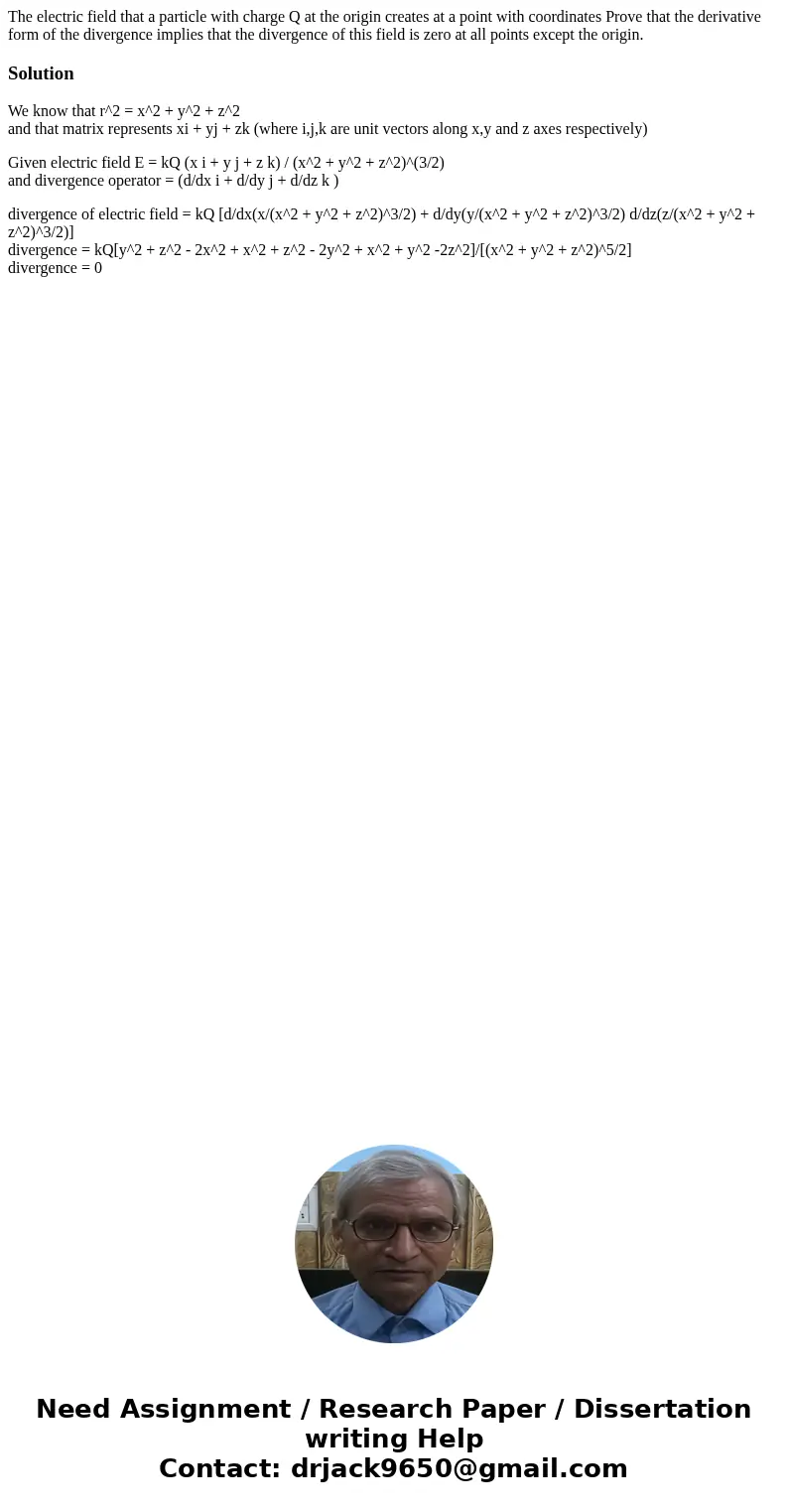The electric field that a particle with charge Q at the orig
The electric field that a particle with charge Q at the origin creates at a point with coordinates Prove that the derivative form of the divergence implies that the divergence of this field is zero at all points except the origin.
Solution
We know that r^2 = x^2 + y^2 + z^2
and that matrix represents xi + yj + zk (where i,j,k are unit vectors along x,y and z axes respectively)
Given electric field E = kQ (x i + y j + z k) / (x^2 + y^2 + z^2)^(3/2)
and divergence operator = (d/dx i + d/dy j + d/dz k )
divergence of electric field = kQ [d/dx(x/(x^2 + y^2 + z^2)^3/2) + d/dy(y/(x^2 + y^2 + z^2)^3/2) d/dz(z/(x^2 + y^2 + z^2)^3/2)]
divergence = kQ[y^2 + z^2 - 2x^2 + x^2 + z^2 - 2y^2 + x^2 + y^2 -2z^2]/[(x^2 + y^2 + z^2)^5/2]
divergence = 0

 Homework Sourse
Homework Sourse